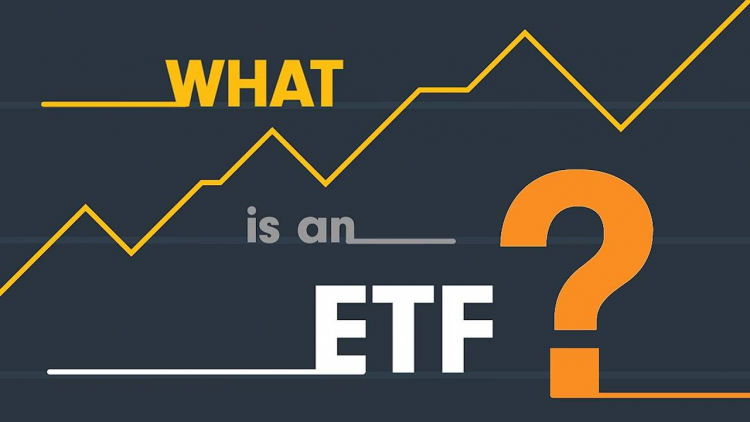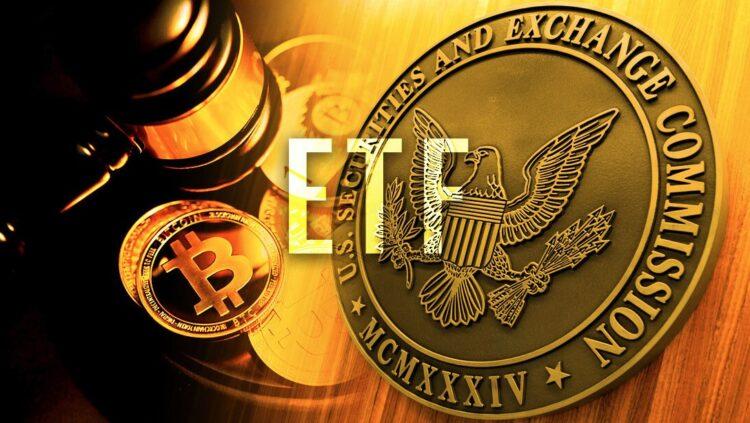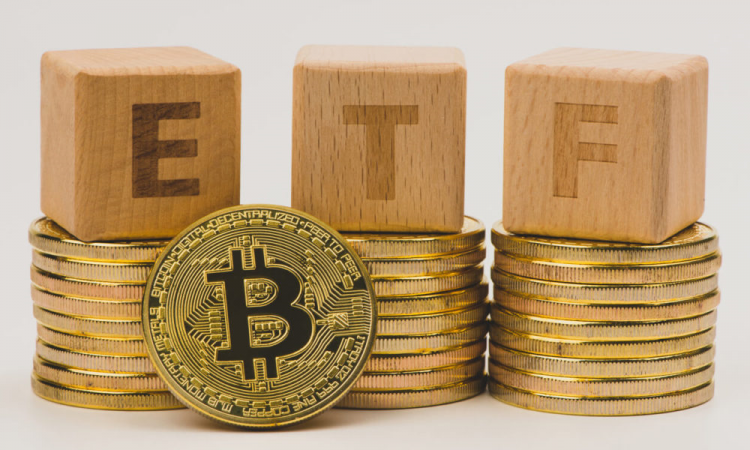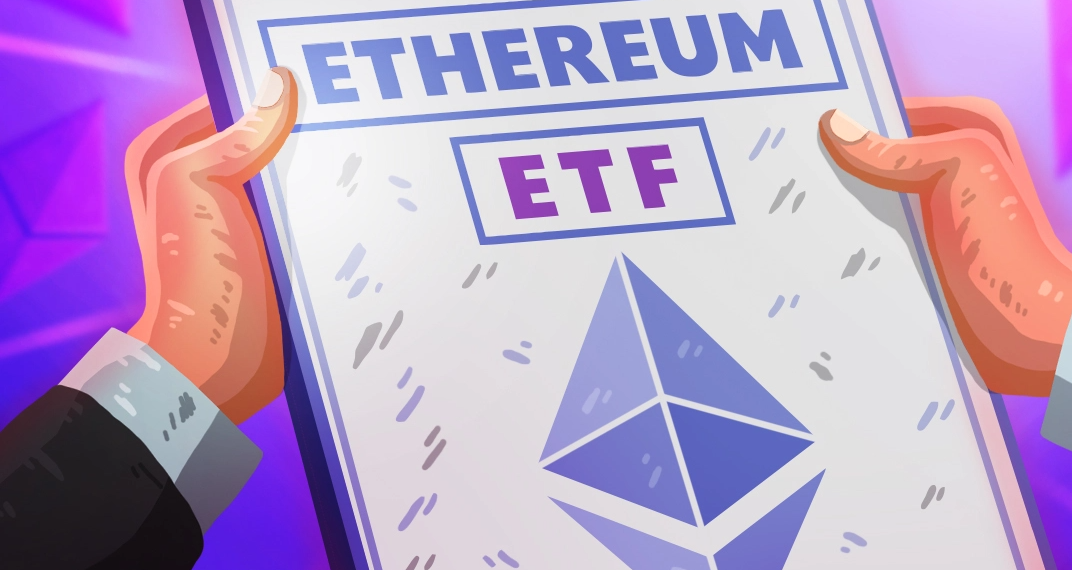Advertisement
What is an Exchange-Traded Fund (ETF)?
An ETF (Portfolio Swap Fund) is a type of investment fund that is made up of a set of securities (such as stocks, and bonds), commodities, and currencies and is listed for trading on conventional stock exchanges. ETFs track the price movements of an underlying asset. Utility tokens, though only virtual currencies, can also be part of an ETF.
ETFs have similarities to mutual funds, which are established fund models with a variety of funds raised from different investors, except that their shares trade on a 24-hour cycle, similar to a direct interaction with a company’s stock on a stock exchange. On the other hand, mutual fund trading varies according to its price at the end of the trading day.

In short, the crypto ETF will help financial investors put money into Bitcoin and other crypto assets without having to own or manage cryptocurrencies.
ETF regulations
The U.S. Securities and Exchange Commission (SEC) operates on the largest capital markets tasked with regulating ETFs under the Investment Companies Act of 1940, which generally follows the same regulatory guidelines as Mutual Funds and Unit Investment Trusts (UIT).
According to the SEC, regulatory requirements for ETFs include Federal Securities Laws and related exemptions designed to protect investors from risks and conflicts; statutory deadlines for the use of leverage and transactions with stakeholders; requests for accurate reporting and the obligation to publish information; Reviewed by a board of directors.
On September 26, 2019, the SEC announced that it had voted on a new rule aimed at modernizing ETF regulations. This is done by establishing a transparent, consistent, and effective regulatory framework so that ETFs do not have to apply for individual exemptions, which take time and cost before they hit the market.

One year after the introduction of this rule, the SEC has suspended exemptions already for certain ETFs. Therefore, ETFs based on this rule will have to comply with the conditions set by the SEC to protect investors.
Finally, a clear and consistent regulatory framework will drive greater innovation and competition in the ETF industry, while benefiting investors. This is especially true for retail investors (known as “main street“), who are increasingly using ETF products as part of their portfolios, due to their low cost and passive investment nature.
In fact, a record $305 billion has flowed into U.S.-listed ETFs, as of June 2021, compared to $249 billion for the whole of 2020.
The benefits of investing in an ETF
Private investors have access to equity in capital raisings from public companies or private funds, and institutional investors and family offices are offered exclusive access to financial products with minimal investable amounts.
ETFs are usually suitable for retail investors in the mass market. This is due to the amount of upfront money required to start an investment, extremely low fees (the typical ETF cost ratio is about 0.05%), and the widespread availability of online brokers.
In the post-pandemic era and the next bull run in 2020, when stocks grow, especially tech companies. ARK Innovation ETF (ARKK) by Star Fund manager and Ark Invest founder Cathie Wood. The fund generated a return of 152.82% in 2020, which is exceptional for an ETF and when compared to a 20.9% return on the vast U.S. stock market.
What is a crypto ETF?
A crypto ETF is an ETF that tracks the change in the value of one or more digital currencies. Basically, it acts like a traditional ETF and is traded like a standard stock on a stock exchange.
In order for the Crypto ETF to work, the company that issues and lists it on an exchange needs to be subject to oversight over the underlying digital currency. Then, investors buy stocks and may indirectly be exposed to the volatility of the underlying cryptocurrency.
ETFs will be less risky when investing in blockchain-backed assets. In some cases, blockchain investing may involve buying into a Blockchain ETF. Here, an investor interacts with ETFs that mimic holding shares of a company that trades using Blockchain technology.
An example of a blockchain ETF is Block, which launched in 2018. ETFs acquire 80% of their net assets into companies that partner with DLT.
Note that in order for the Crypto ETF to operate, it must receive the prescribed green light from financial watchdogs in jurisdictions. For example, a Crypto ETF seeking to attract investments from U.S. residents must obtain regulatory consent from the U.S. Securities and Exchange Commission (SEC).
See also: What Are The Differences Between Investment And Speculation?
What is a Bitcoin ETF?

ETFs available today (for most of the world, not Bitcoin) can be purchased on mobile apps like Fidelity, Robinhood, and TD Ameritrade, they are slightly different from Mutual Funds, as they trade continuously throughout the day.
The Bitcoin ETF is an exchange-traded fund capable of tracking the value of Bitcoin. The Bitcoin ETF will be available to trade on traditional stock exchanges such as the New York Stock Exchange (NYSE) if it is approved in the United States. However, BTC still mainly trades on cryptocurrency exchanges, not in the form of ETFs.
Investors in the Bitcoin ETF need to speculate on the value of Bitcoin without another Bitcoin wallet to protect their assets. These are the advantages as well as the disadvantages of the Bitcoin ETF. Real investors don’t own any Bitcoin, similar to the Gold ETF (GLD).
This form resembling Derivative securities will make it easier for inexperienced investors to enter the Bitcoin market. With the Bitcoin ETF, large investors can invest in multiple cryptocurrencies at the same time or have just invested in bitcoin securities and investments in a single portfolio.
Ethereum ETF

The Ethereum ETF is an ETF that gives investors exposure – through trading on stock exchanges – to the second-largest cryptocurrency. ETFs are comparable to stocks or bonds, except that the underlying asset here is Ethereum (ETH).
Despite multiple records of an Ethereum ETF in the United States, the country’s Financial Supervisory Authority has yet to give an official answer, citing cryptocurrency price volatility and security issues.
On the other hand, Canada was the first country to approve the Ether ETF, after CI Global announced the CI Galaxy Ethereum ETF in February 2021.
With the price volatility of Ethereum and other digital currencies, cryptocurrency enthusiasts see the Ethereum ETF as a great way to invest in cryptocurrencies without buying actual ETH coins. Investing in ETFs also means that people won’t have to own ETH, which may be safer for some investors, as supervisors will often have more security mechanisms than the average investor.
Advantages of crypto ETF
- Consolidation of traditional finance and cryptocurrencies
Despite reaching more than $1.5 trillion in market capitalization, the cryptocurrency market is still very small compared to the tens of trillions located in traditional hedge funds, mutual funds, insurance companies, and other institutions.
Crypto ETFs have the potential to bridge the gap between the cryptocurrency economy and the rest of the world’s economies. And participation in the broader market is likely to have a positive impact on the valuation not only of Bitcoin but also of other cryptocurrencies.
- Diversification
First, be aware that an ETF can hold more than one asset. For example, an Ethereum ETF (despite its name) could also hold Bitcoin or even Facebook stock. Therefore, it offers investors a way to diversify their portfolios.
This option also helps investors hedge the risk inherent in determining a portfolio in a single asset. Furthermore, interacting with a regulated stock exchange allows investors to take advantage of existing portfolios even more.
- Convenience
Crypto ETFs ignore the complexity of buying, selling, and storing cryptocurrencies, simplifying the indirect entry of mass-market investors into the cryptocurrency ecosystem, while giving them access to the entire range of major digital assets or specific verticals, such as decentralized finance (DeFi), if they invest in intensive ETFs.
Moreover, the passive nature of ETFs, which automatically rebalance if they are actively managed, allows retail investors in the mass market to invest, which is considered the most profitable investment strategy, according to a study by Fidelity Investments.
- Effectiveness in the tax return process
Taking advantage of regulated platforms such as stock exchanges can enable effective payment of Crypto ETF taxes.
- More confident
Another advantage of crypto ETFs is that they come from regulated and regulated companies. Therefore, cryptocurrency investors can place their money with confidence knowing everything is constantly monitored.
Disadvantages of Crypto ETF
- ETFs are focused.
Cryptocurrencies alleviate dependence on centralized financial institutions, such as the Central Bank. In addition, they offer a higher level of privacy than government-issued currencies.
While these are good reasons to adopt cryptocurrencies, the use of cryptocurrencies in ETFs will detract from an important aspect of cryptocurrencies, which is decentralization. Investing in a crypto ETF means allowing the supervisor to hold your digital assets.
- HIGH-cost ETFs to manage
The convenience of crypto ETFs comes with management fees. Since the cost is usually a percentage of the total stock, investments in crypto ETFs can attract high management fees corresponding to the duration of the investment.
- ETFs cannot be traded with other currencies.
BTC, ETH, and other currencies can often trade with each other on digital currency exchanges. Not for crypto ETFs. Furthermore, crypto ETFs cannot pay for goods and services, unlike the underlying crypto asset that some sellers may have accepted.
- Accuracy is not guaranteed.
A crypto ETF can hold more than one asset, including non-crypto assets. And although ETFs mimic the price movements of underlying assets, many assets in portfolios can be affected by accuracy. For example, a 60% increase in the value of ETH can be shown as a 45% increase in etiquette. Therefore, the tracking may not be accurate compared to the same asset in the spot market.
- Liquidity risks
Liquidity risks arise if the ETF fund manager shorts. When that happens, shareholders pay the price.

See also: What Is Bitcoin Halving? The Meaning Of The Bitcoin Halving Event
What is the potential of the ETF?
In 2017 and 2018, the SEC cited volatility as the main reason for rejecting ETFs, which was also the reason behind the market downturn at the time. Three years later, the cryptocurrency ecosystem has made great strides to thrive.
Experts like Cathie Wood, an executive at Ark Investment Management believe that the success of the cryptocurrency industry is pegged at a Market Capitalization of about $2 trillion, and this number is getting closer.
In any case with Gary Gensler in charge of the SEC and many large institutions and prominent business figures such as Paul Tudor Jones, Elon Musk, Stan Druckenmiller as well as many others who are investing in Bitcoin, the odds will be even better if at least one Bitcoin ETF is finally given the green light by the SEC in 2021.
















